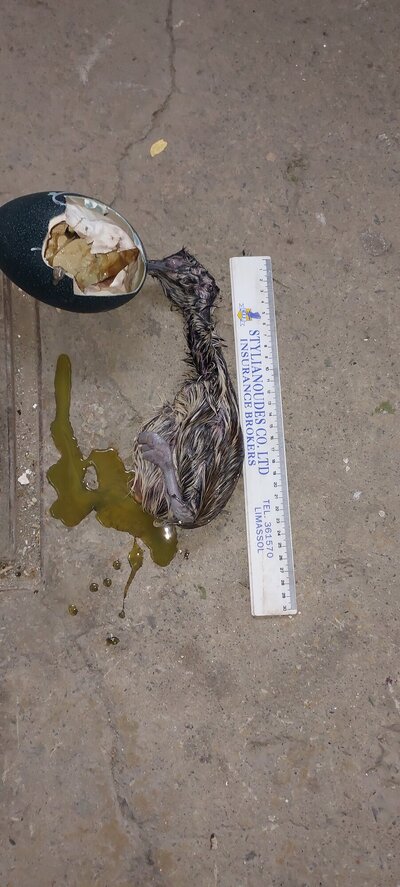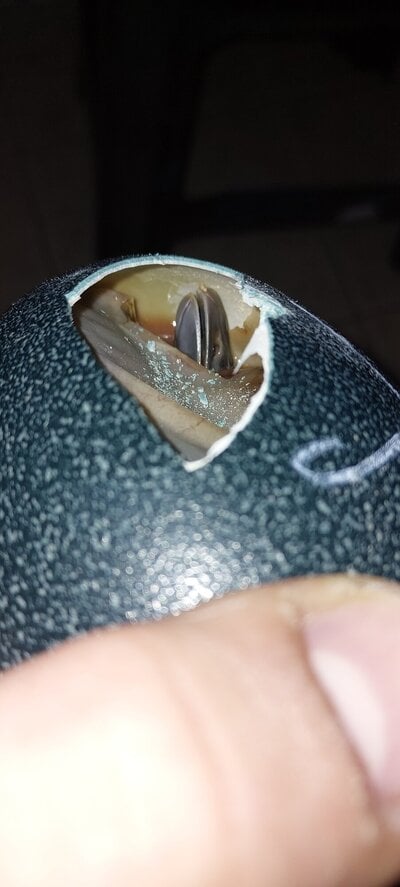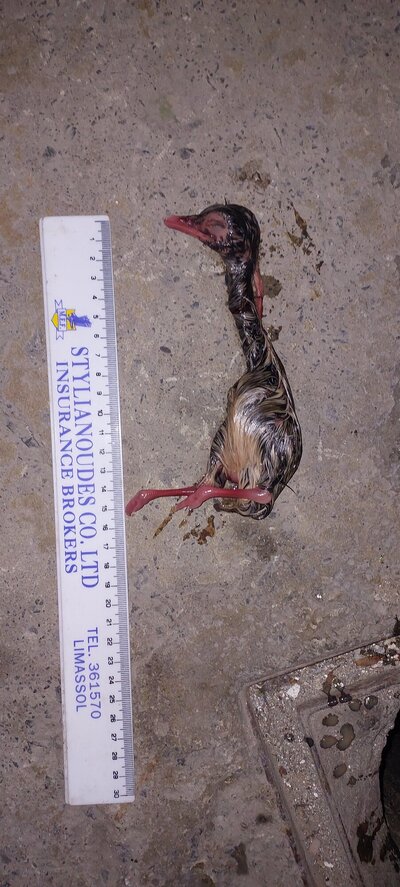well, i have been incubating all kinds of eggs for the last 10 years, always using homemade incubators that i built myself, using quality electronic thermostats and thermometers to regulate the correct temperature and i have had a great success over the years hatching a lot of chicken, duck, quail, pheasant, partridge,guineafowl,turkey, peacock eggs, for the last 3 years i was experenenting with emu eggs, and although i ve some hatch successfully, in my last batch of 13 eggs i have had only 1 chick, 4 infertile/rotten eggs and 8 dead embryos, 3 of them were at the first days so when i open the eggs i only found some vains and a little bit of blood, The thing that bothers me tho is that from the rest 5 eggs 3 of them were fully completed emus and they died at the very last days of incubation, they also had the outer membrane piped put not the shell, the other 2 were dead by day 40 and when i open the egg were fully completed and clothed but smaller than a fully developed emu embyo, does anybody know why they keep dying inside the egg? i ve had this problem with other birds but in a very small percentage the only eggs that i have had such a big problem were pheasant eggs, is it something to do with the nutrition of the parents? i dont keep my own emus, i buy the eggs from a local who keeps 2 females and one male, ive seen the birds they seem healthy and happy, any solution? i also know about safety holes, but i didnt try it on an emu egg yet, do you guys believe that i have to open a sefety hole as soon as i hear the chick chirping inside the egg?
I keep the temperature at 36.3 celcius and i adjust the humidity from 30% to 60% to match the correct weight loss, i do weight the eggs once a week.
First 2 pictures are chicks that piped the membrane and died before braking the shell they died at around day 51,
last picture is a chick that died at around day 40.
Thanks!
I keep the temperature at 36.3 celcius and i adjust the humidity from 30% to 60% to match the correct weight loss, i do weight the eggs once a week.
First 2 pictures are chicks that piped the membrane and died before braking the shell they died at around day 51,
last picture is a chick that died at around day 40.
Thanks!
Attachments
Last edited:






